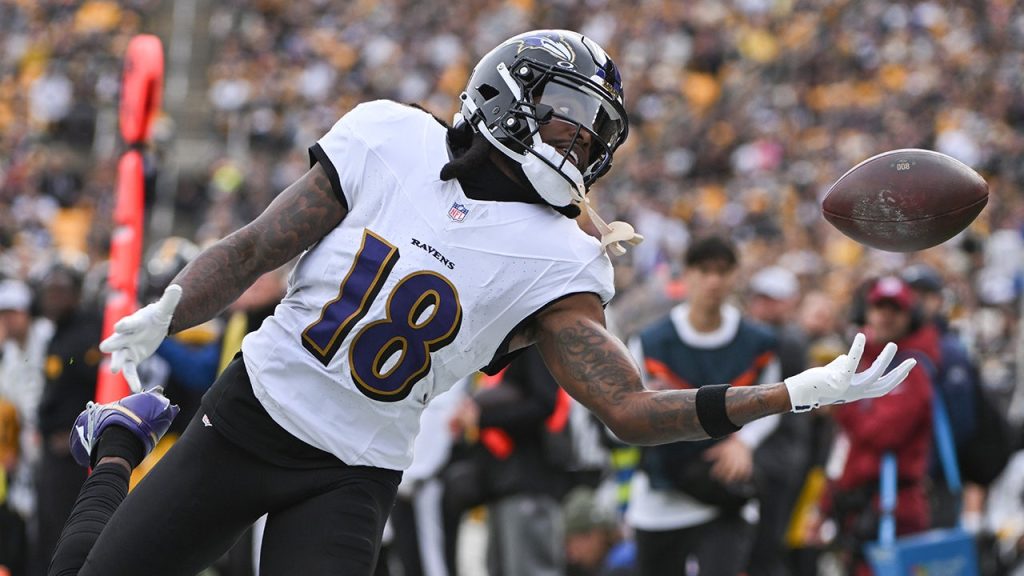The Baltimore Ravens recently announced the suspension of wide receiver Diontae Johnson for one game due to conduct detrimental to the team. General Manager Eric DeCosta provided clarity on the situation, stating that Johnson’s refusal to enter the game against the Philadelphia Eagles was the primary reason for his suspension. DeCosta described the decision as “difficult,” especially considering Johnson’s recent acquisition from the Carolina Panthers prior to the NFL trade deadline. The suspension will keep him sidelined for the Ravens’ game against the New York Giants following their bye week, highlighting the challenges both the team and Johnson are facing in their relationship.
Johnson’s transition to the Ravens has not been smooth. Since joining, he has played only 16% of the offensive snaps in four games, with just one start. His limited involvement raises questions about his role in offensive coordinator Todd Munken’s scheme, especially given that he didn’t step in to fill the void when fellow receiver Rashod Bateman suffered a knee injury during the Eagles game. Notably, Johnson’s performance has been underwhelming, with only a single catch for six yards in his short stint with the Ravens, a significant drop from his role as the Panthers’ leading receiver prior to the trade.
The circumstances surrounding Johnson’s suspension are particularly concerning for him as he heads into free agency after this season. His refusal to participate in the game, coupled with his dwindling production, may deter potential teams from pursuing him during the offseason. His situation contrasts sharply with his earlier success; he was a pivotal player for the Pittsburgh Steelers, where he showcased his capabilities as a Pro Bowler in 2021, gathering 107 receptions for 1,161 yards and eight touchdowns. The stark difference in his performance with the Ravens has raised eyebrows among fans and analysts.
Quarterback Lamar Jackson expressed his support for Johnson despite the ongoing turmoil, emphasizing the receiver’s talent. Jackson noted, “We want him out there,” reinforcing the idea that the Ravens see potential in Johnson that has yet to be fully utilized. The quarterback implied that bringing Johnson in from the Panthers was a calculated move to enhance the team’s receiving corps, illustrating the disconnect between the team’s expectations and Johnson’s current contributions on the field.
Johnson’s turbulent relationship with his previous team, the Pittsburgh Steelers, might have contributed to his recent struggles. Once a favorite target of quarterback Ben Roethlisberger, Johnson’s time in Pittsburgh ended on rough terms, leading to his trade to Carolina before the season. His previous accolades and production with the Steelers highlighted his skills, but the transition to the Ravens has not yielded the same success, calling into question whether a fresh start with a new team could revitalize his career.
As Johnson navigates his suspension and the implications on his future, the Ravens must reassess their offensive strategy and how they can effectively integrate him into the lineup. The situation serves as a reminder of how quickly circumstances can change in the NFL, where player dynamics can be affected by both on-field performance and off-field behavior. For Johnson, the upcoming months will be crucial as he looks to reclaim his status in the league and secure a favorable position in free agency next season.

